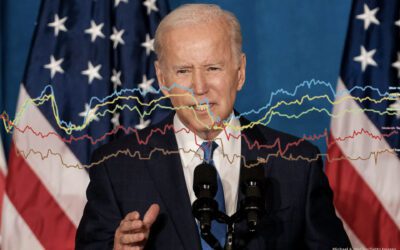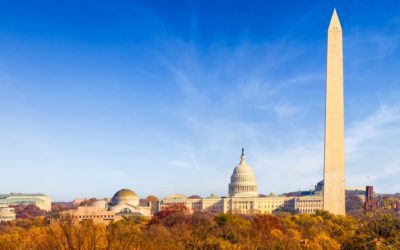The 2012 election will be the most expensive in history, fueled by unlimited spending by super PACs and other political groups, as well as candidates’ furious fundraising to keep up. On the second anniversary of the Supreme Court’s Citizens United decision, it’s clear that the American people are tired of a political system that sidelines ordinary voters while selling power and influence to the highest bidder.
At a time when Americans believe the country is on the wrong track and have little faith in Congress, voters want their leaders to stand for reform and accountability, centered on breaking the nexus of money and power in Washington. The latest survey by Greenberg Quinlan Rosner for Democracy Corps and Public Campaign Action Fund[1] shows that the Citizens United decision is intensely unpopular. Americans across all parties oppose the ruling; among all voters, 62 percent oppose the decision and nearly half (46 percent) strongly oppose it. More than half of all voters say they would support a constitutional amendment to reverse the opinion. This survey reveals that campaign finance reform cannot be overlooked in 2012; more than three-quarters of American voters say that it is important for candidates to make campaign finance reform a key election issue. More importantly, voters say that reducing the influence of money in politics will be a deciding factor when they go to the ballot box in November.
Key Findings:
- Voters are intensely angry at lobbyists and the influence of money in politics. Two-thirds of voters give lobbyists a negative rating on our thermometer scale, more than half (54 percent) give them intensely negative ratings. A large majority (57 percent) give money in politics a negative rating, nearly half (49 percent) are intensely negative about the influence of money in politics.
- Americans strongly oppose the Citizens United decision and a majority (55 percent) believe that corporations should not have the same constitutional rights as individuals.
- Voters believe that the system is stacked against them – addressing the role of big money in politics is about giving ordinary voters a voice in Washington again. A strong majority (60 percent) say that the middle class will not catch a break in this economy until we reduce the influence of lobbyists, big banks, and big donors.
- A near consensus exists among voters that there should be limits on campaign money. Eight in ten voters say there is too much big money spent on political campaigns and elections today and that campaign contributions and spending should be limited.
- This has a big impact on the way voters see candidates for the highest offices. Two-thirds of all voters and three-quarters of independents say that big donors and secret money undermine democracy.
- By a two-to-one margin, voters say reducing the influence of lobbyists and money in politics will be an important factor in their vote.
- Swing voters, independents in particular, fall strongly on the side of reform, making campaign finance reform a potentially consequential election issue.
- Right now, neither party owns this issue. Republicans enjoy a slight advantage on “cleaning up the mess in Washington.” However, 28 percent either refused to answer the question or volunteered “neither” when asked which party would do a better job. An issue this important to voters is ripe for either party to grab at this early stage of the election season.
- Voters are broadly supportive of campaign finance reform. They support a plan that would replace the current system of big contributions with one built on small donations and matching funds.
Breaking the nexus of money and politics to give the middle class a voice
Voters are intensely frustrated with the current campaign finance system. Voters believe it undermines democracy by selling power to the highest bidder. Two-thirds agree with a statement that says: “Given what I see in the presidential race, I am fed up with the big donors and secret money that control which candidates we hear about. It undermines democracy.” By contrast, less than one third say that money is always going to be spent in campaigns and voters are the ones who ultimately decide. As a result, given the choice between placing limits on campaign contributions and allowing unlimited contributions, voters choose the former by more than four-to-one.
To be clear, this is not just about campaigns. Voters believe this system has real consequences for the middle class in America. We tested two identical messages about rebuilding the economy for the middle class. More than half (53 percent) agreed with the statement. But when we added “The middle class won’t catch a break unless we start by reducing the influence of big banks, big donors and corporate lobbyists,” support climbed to 60 percent and more than half (51 percent) strongly agreed with the revised statement.
Americans are not concerned about campaign funding for its own sake–”they believe that big banks, big donors, and corporate lobbyists influence policy for their own benefit at the expense of middle class priorities getting a voice in Washington.
Voters strongly believe that the current system should be reformed. However, simply replacing the current system with public funding, without offering specifics to voters, is not as popular as providing some details about how it should be done. Reforming the system to one financed by a combination of small donations and matching funds is much more popular. Voters believe that small donors should be able to vote with their wallets, putting campaign funding back in the hands of ordinary voters.
Voting booth consequences
These results make clear that voters are willing to reward reform candidates and punish those who support the status quo. Nearly two-thirds of all voters (63 percent) say reducing the influence of money in politics and special interest lobbyists will be a very important factor in determining their votes. The issue is particularly important among independents, who will cast deciding votes in many races next fall. Seven-in-ten independents say they oppose the Citizens United decision and a strong majority (56 percent) say they would favor an amendment to overturn it. An overwhelming majority of independents (89 percent) say there is too much big money spent on political campaigns and elections today and reasonable limits should be placed on campaign contributions and spending. Three-quarters of independents say that given what they have seen in the presidential race, they are fed up with big money, which undermines democracy. Importantly, two-thirds of independents say that campaign finance reform is a very important factor in their vote. An overwhelming majority of Democratic voters (69 percent) and a strong majority of Republicans (56 percent) do as well.
Indeed, across all target swing demographics, voters report that reducing the influence of money in politics will be a key factor in determining their vote. Two thirds of young men, suburban voters (who have been trending more Democratic), and white non-college educated voters (who swung sharply for Republicans in 2010) say that reducing the influence of money in politics will be a very important factor in their vote. Additionally, approximately 60 percent of seniors, unmarried white women, and voters living in districts picked up by Republicans in 2010 say that it is a very important factor in their vote.
| White Seniors | White non-college | Suburban | White unmarried women | 2010 Republican PICK-UPS | Young men | |
| Very important factor in my vote | 59 | 65 | 64 | 62 | 61 | 64 |
| Not a very important factor in my vote | 29 | 29 | 34 | 31 | 30 | 35 |
[1] This memo is based on a national survey of 1000 likely 2012 voters conducted January 8-11, 2012 by Greenberg Quinlan Rosner Research for Democracy Corps and Public Campaign Action Fund. Unless otherwise noted, margin of error= +/- 3.1 percentage points at 95% confidence.




